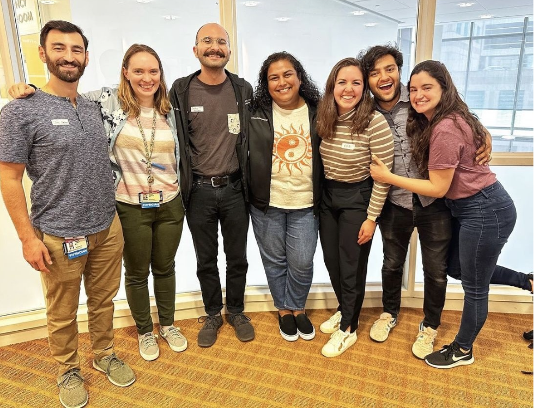Urban Bioethics Track
Directors
Dr. Stephanie Spivack (Clinical) — Stephanie.Spivack@tuhs.temple.edu
Dr. Nora Jones (Master’s Program) — Nora.Jones@temple.edu
Description
Temple is located in one of the most socioeconomically disadvantaged zip codes in the city. The patients we care for face a number of challenges, including low health literacy, limited access to safe housing, poverty, and poor access to comprehensive health care. These disparities stem from structural, political, and social forces. The Urban Bioethics track was developed for residents who are looking to build a strong foundation and a deeper understanding of social determinants of health, health disparities, community engagement, and the role of ethics in health, laws, and policy.
This track offers a rare opportunity to earn a Master’s Degree in Urban Bioethics (MAUB) during residency. Temple is the only residency program in the country to offer this type of degree within an Internal Medicine residency. The coursework is offered through the Temple University Center for Urban Bioethics (CUB), which approaches health equity as an ethical problem, with the mission of eliminating health disparities through education and community-focused research.
The master's program was designed with the medical professional in mind and offers a large degree of flexibility for completing courses around clinical rotations. Coursework begins in the second year of residency and consists of seminars which are held in the late afternoons. These are recorded and available for viewing at a later time on Canvas (the university-wide course web management system), which means that residents can still participate in coursework even when schedules conflict with the lecture. Some courses are entirely online. There are also electives, independent study projects, and a master's thesis, which is guided and mentored by both course directors and track directors. It is also possible to obtain a Certificate in Urban Bioethics by completing the core coursework without completing a thesis. Additionally, and excitingly, Temple’s resident benefits include tuition remission for this master's program!
In addition to the master’s coursework, track members will participate in two elective weeks each academic year dedicated to Urban Bioethics. These weeks are structured to give participants time to complete academic assignments, reflect on their experiences, and dive deeper into areas of interest.
Please see the master's program website at this link for more information about the program. Additionally, a sample schedule can be found at this link.
How and When to Apply
Interested residents apply for this track during the winter of intern year. The application consists of the resident’s CV and a personal statement expressing their reason for interest in the program. Previous work or volunteer experience with underserved populations (prior to Temple residency) will be considered, but it is not required in order to apply. A background in ethics is not required. Because of the additional coursework required, applicants must be in good standing at the time of application.
Meet Our Urban Bioethics Residents

Name: Irene Tsai
Hometown: Long Island, NY
College: Cornell University
Medical School: Stony Brook School of Medicine
Why did you choose the Urban Bioethics Track?: The Urban Bioethics track was a unique feature at Temple that made me excited to match and start residency here. Patients' illness experiences can be nuanced and complex - especially in a location like North Philadelphia - and I am grateful to learn more about ethical principles that can be applied and guide our everyday clinical practice.

Name: Liam Flanagan
Hometown: Madison, NJ
College: Georgetown University
Medical School: Rutgers New Jersey Medical School
Why did you choose the Urban Bioethics Track?: The density, diversity, and disparity of urban environments creates complex medical scenarios and ethical questions. Through this track I’m hoping to gain greater insight into the underpinnings of urban medical history, economics, and health policy, with an emphasis on how this knowledge can be used to promote more ethical healthcare decisions and systems in the future.

